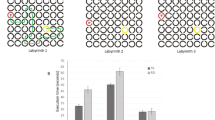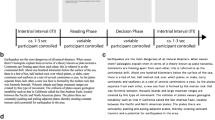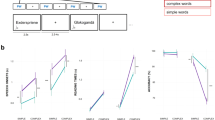Abstract
Dyslexia and attentional problems are often comorbid. This raises the question whether reading deficits might etiologically follow from attentional difficulties, a hypothesis that has been proposed in regard to visuo-spatial attention deficits. This visuo-spatial attention deficit hypothesis would predict that attention deficits should be specific to dyslexia. However, it is here estimated that at the population level there are more non-dyslexic individuals than dyslexic individuals with visuo-spatial attention deficits. The reason for this is that in the overall population level there are far more individuals without dyslexia than with dyslexia. Thus, a relatively modest percentage presence of attention problems in the non-dyslexic population can result in a greater absolute number of on-dyslexic individuals with such problems. It is concluded that attention problems are unlikely to be specific to dyslexia.
Similar content being viewed by others
Article PDF
Author information
Authors and Affiliations
Corresponding author
Rights and permissions
About this article
Cite this article
Skoyles, J., Skottun, B. A few remarks on the relationship between visuo-spatial attention deficits and dyslexia. Nat Prec (2011). https://doi.org/10.1038/npre.2011.5525.1
Received:
Accepted:
Published:
DOI: https://doi.org/10.1038/npre.2011.5525.1



